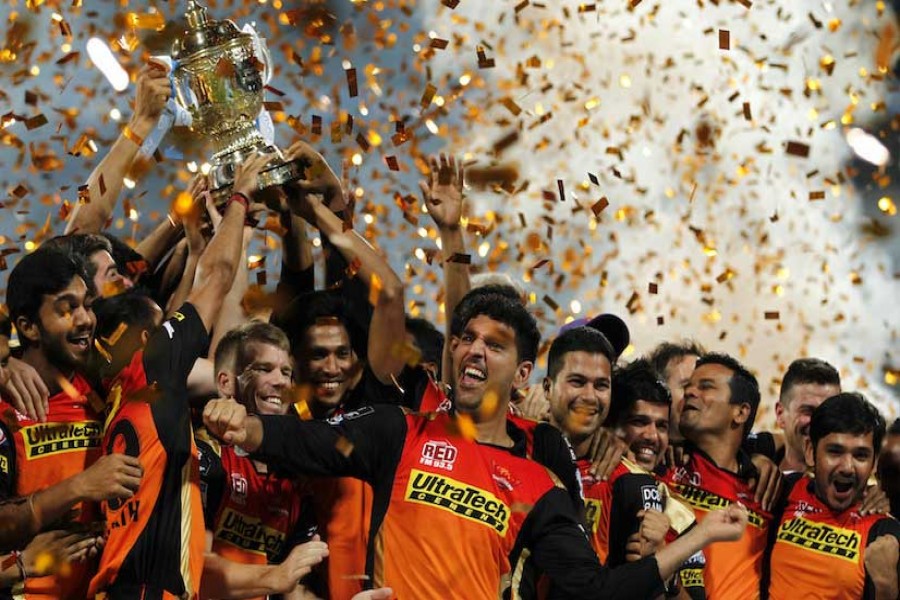In an age, when cricket is an entertainment commodity vying for eyeballs, it is natural that business tycoons who are investing pots of money in the Indian Premier League (IPL), would not care about the game or those greats whose mind-blowing performances have cheered thousands of fans.
The franchise owners are investors and can, therefore, be expected to do all that they can do to recoup their investment.
Luring almost all the big names in the contemporary cricketing circuit, the IPL has already become a huge spectacle, which in some way seems broader than the game itself. The raucous presence of the cheerleaders is an example of that.
IPL seems to have broadened the fan base of cricket. Working people can watch matches at the end of a long working day. For its lack of the intense test of batsmanship inherent in its fast-food like structure, twenty /twenties may never be the cup of tea of the game's purists; but it appears to be a very convincing way for popularising the game beyond the Commonwealth countries.
India's young players have gotten the exposure that would have taken their predecessors years of hard toil. Above all, surely, it has given cricketers much more money for the entertainment they offer.
While the game on the pitch has produced some great individual performances and thrilling matches, affairs off the pitch have often not been so glowing (the controversy about the irregularities is well-documented), to say the least.
However, the extravaganza of the bidding for players has not been much talked about so far. The biding process is disgraceful as the players are auctioned here like commodities. The degree of disgrace intensifies when some of the great names of the games are called but not cared.
They may have passed their heyday. Maybe they could have been better advised by being off the pitch than trying to be on it. Maybe they do not have the merit to be auctioned. But this display of disgrace to the great players surely gives pains to millions of fans. Undoubtedly players and Cricket fans deserve better from the game's most powerful national board.
This whole non-sense of making a show out of what should be a mere formality of signing contracts evoked one of the saddest memories of my childhood. Growing up in an economically backward country, on my way to school, I used to pass a bazaar where say labourers used to flock in a place beside the street so that people needing their service could come and 'buy' their toils for the day. When I looked at the anxious, desperate faces of the unsold men just because they may appear to be not strong enough for the, the world suddenly seemed to be a very gloomy and cruel place to live.
Fans should be grateful that the owners have not asked their products to be at the showcase. For sure, the faces of some of the stars to know their worth would have been a much bigger show, and consequently, attract a lot more eyeballs.
The IPL on the pitch offers enough; the off-the-pitch reality show of auction of players in buying cricketer's service should be stamped out. The organisers of IPL and the franchise owners are smart individuals and surely, they know their bottom line far too well.
It seems that until now that the show of buying has achieved their commercial targets. However, the public's appetite for this sort of off-the-pitch show may not be insatiable. Should IPL authorities continue this sort of extravaganza, true lovers of the games may say in a fine morning that they have had enough of this nonsense, and turn their backs on it. The organisers and franchise owners' business is, after all, about the fans. If fans show their back, they will have no show to sell. And true lovers of the game may not tolerate this farce for too long.
The writer is an Associate Professor at the Department of Law, North South University.


